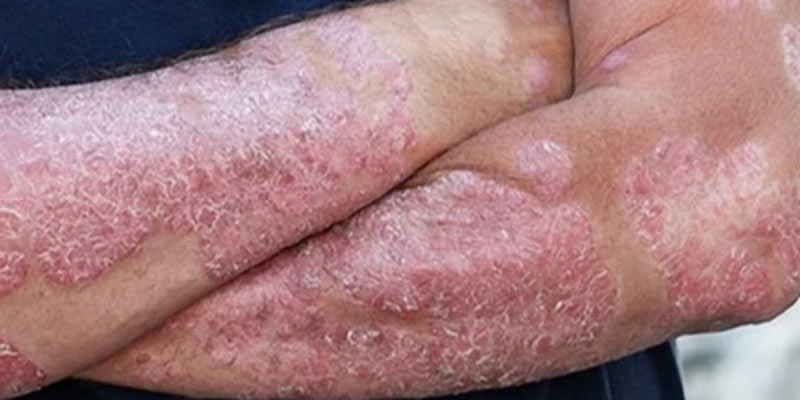Social Anxiety Disorder: Causes, Symptoms, and Diagnosis
Jan 24, 2024 By Madison Evans
If you're feeling overwhelmingly worried, embarrassed, or uncomfortable in social situations, it may be a sign of social anxiety disorder. Whether you’ve been avoiding certain activities or places because of your fear and discomfort with other people, learning about the causes, symptoms, and diagnosis of this often misunderstood condition can help you better understand what you’re experiencing and make positive changes in your life. Read on to learn more about Social Anxiety Disorder one step at a time.
What is Social Anxiety Disorder (SAD)?
Social Anxiety Disorder (SAD) is a common and often misunderstood mental health condition characterized by an intense fear of social situations. Those who suffer from SAD experience overwhelming anxiety about being judged or scrutinized by others, often to the point of avoiding social situations altogether.
This disorder can have a significant impact on a person's quality of life,
making everyday activities like:
- attending school or work,
- going to parties or social events,
- grocery shopping,
feel almost impossible. It's important to remember that SAD is a real and treatable mental health condition, and seeking help from a professional can make a significant difference in managing symptoms and improving overall well being.

Causes of SAD:
Seasonal Affective Disorder (SAD) is a type of depression that usually occurs during the fall and winter months. This disorder can affect anyone, but it's more common in women and those who live far from the equator.
Many factors can cause SAD, including changes in the amount of daylight we receive during the winter months, disruptions in our circadian rhythm, and changes in serotonin levels.
Research shows that people with SAD tend to have lower levels of serotonin, which is a brain chemical that influences our mood. Some people are more genetically predisposed to SAD than others. While we still have a lot to learn about this disorder, treatments such as light therapy, medication, and psychotherapy can help alleviate symptoms.
Symptoms of SAD:
Winter can be a tough season for many, and for some, it can bring on a serious change in mood.
Symptoms of SAD can include feelings of:
- hopelessness,
- fatigue,
- increased appetite,
- difficulty finding joy in activities that were previously enjoyable,
There are many treatment options available to help alleviate SAD and get you back to feeling like yourself again.
Diagnosis of SAD:
Seasonal Affective Disorder, or SAD, can feel like a heavy weight on one's shoulders during the winter months. Those who suffer from SAD often feel tired, irritable, and lose interest in activities they once enjoyed.
While these symptoms may seem like normal winter blues, they can actually be a sign of a more serious issue. That's where diagnosis comes in. Doctors use a variety of tools, such as questionnaires and interviews, to determine if a patient is suffering from SAD, or if their symptoms can be attributed to another condition.
Obtaining a proper diagnosis is crucial, as it can lead to appropriate treatment and a renewed sense of well-being.
Treatment Options for SAD:
The specific cause of SAD is unknown, it's believed to be related to changes in the body's circadian rhythms and levels of serotonin, a neurotransmitter that affects mood.
Luckily, there are several treatment options available for those who suffer from SAD, including medication, talk therapy, and light therapy:
- Medications such as antidepressants can help regulate serotonin levels and improve mood.
- Talk therapy can also be beneficial for those who struggle with the emotional effects of SAD.
- Light therapy involves sitting near a special lamp that emits bright light, which can help regulate circadian rhythms and improve symptoms of SAD.
There is no one-size-fits-all approach to treating SAD, but by working closely with a healthcare provider, individuals can find a treatment plan that works best for them.
How to Cope with Social Anxiety Disorder?

For those with social anxiety disorder, social interactions can be incredibly daunting and overwhelming. Coping with this condition can be a difficult task, but it is not impossible.
One effective way to manage social anxiety disorder is to challenge negative thoughts and beliefs. It is important to recognize that not all social interactions will lead to negative experiences.
Another useful technique is to practice breathing exercises and relaxation techniques to help alleviate physical symptoms of anxiety.
It is important to seek professional help and support from loved ones to help overcome social anxiety disorder. With the right tools and support, it is possible to manage this condition and lead a fulfilling life.
Conclusion:
Social Anxiety Disorder is a common but highly treatable condition that should not be taken lightly. This disorder can have serious effects on a person's day-to-day functioning, so it’s important to get help if you are suffering from it. While facing this condition can feel overwhelming and scary, remember that you are not alone in this journey. There is an array of treatment options available and many strategies that can be used to manage social anxiety disorder.
FAQs:
How do you know if you have social anxiety disorder?
Signs and symptoms of social anxiety disorder include feelings of intense fear or dread when faced with social situations, difficulty making conversation, and avoiding any form of interaction with others.
Why do people get social anxiety?
Social anxiety disorder can be caused by genetic factors, environmental triggers, or a combination of both. Some people may have an inherited predisposition to social anxiety, while others may develop the condition after experiencing traumatic events.
What's the root of social anxiety?
The root cause of social anxiety is not fully understood. Research suggests that it may be caused by a combination of genetic and environmental factors, such as low levels of serotonin, disruptions in circadian rhythm, or traumatic events.







